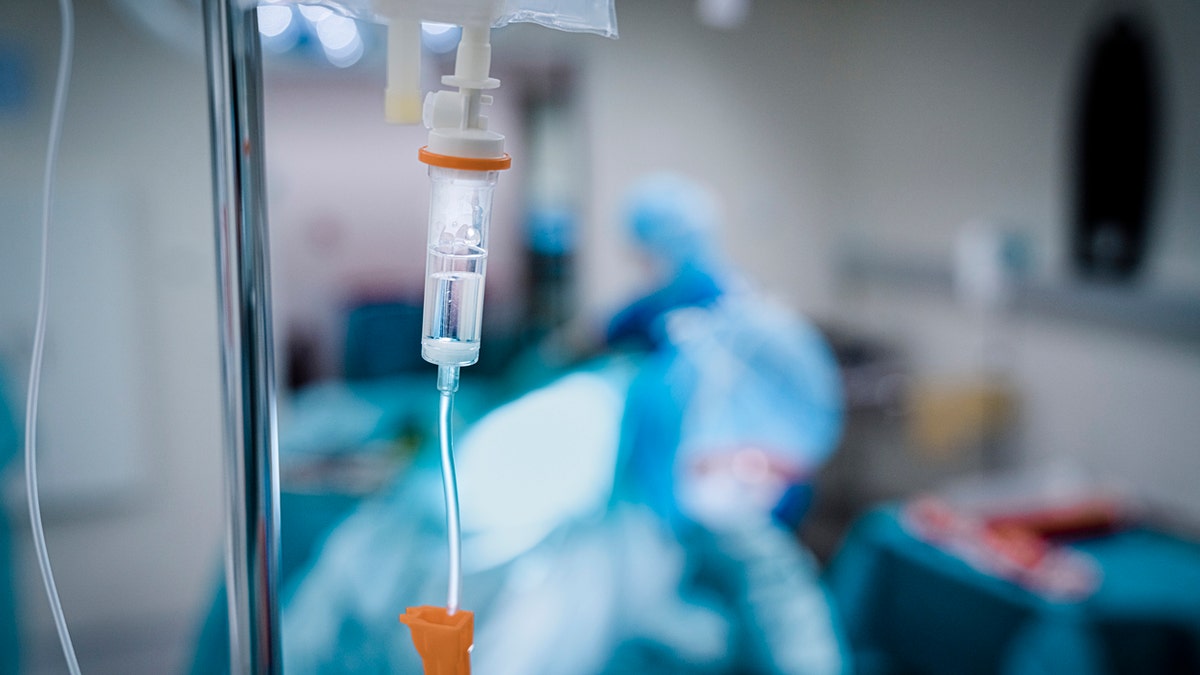'Disturbing' for Cuomo to be 'shaking confidence' in coronavirus vaccine: Siegel
Fox News Medical contributor Dr. Marc Siegel discusses combatting the coronavirus and reacts to Gov. Cuomo's remarks on Pfizer vaccine.
While Eli Lilly’s investigational monoclonal antibody drug, bamlanivimab, just received FDA emergency approval to treat mild coronavirus patients, top officials voiced concerns over its challenging IV infusion process.
“We anticipate that initially, there will be challenges for the health care system in administering IV infusions to infected patients,” Dr. Janet Woodcock, therapeutics lead for Operation Warp Speed, told reporters over a call on Tuesday.
Woodcock said the 700 milligram infusion takes one hour, with an additional hour required to monitor the patient for any reactions to the infusion.
CLICK HERE FOR FULL CORONAVIRUS COVERAGE

Top officials voiced concerns over Eli Lilly's antibody drug's challenging IV infusion process. (iStock)
“Both Lilly and HHS have developed playbooks to help health care providers and systems work through these issues,” she added, saying there could be multiple solutions to challenges depending on the setting.
“We look forward to working with the health care system in rising to this challenge,” she said.
Dr. John Redd, chief medical officer of the Office of the Assistant Secretary for Preparedness & Response, HHS and allocation and distribution lead for this project, echoed Woodcock’s statements, saying: “We do understand, though, the unique challenges that intravenous administration of therapeutics in outpatients with confirmed mild or moderate COVID-19 can present."
"So facilities do, as Dr. Woodcock mentioned, have to have appropriate health care staffing, training and equipment to accommodate an IV infusion," Redd continued.
LILLY'S CORONAVIRUS ANTIBODY TREATMENT GETS FDA EMERGENCY APPROVAL
HHS Secretary Alex Azar told reporters there are more than 80,000 doses of Lilly's drug up for allocation and distribution this week. “We have a contract to purchase 300,000 doses of this product through December, with the option to purchase another 650,000 doses through next June as well,” he said.
“Getting therapeutics like this to patients has the potential to save thousands of lives and significantly reduce the disease’s burden on our health care system," Azar continued.
Woodcock explained that the drug works by attaching to the virus and blocking its entry into cells. This helps a person clear the virus, she said. The drug is not approved for hospitalized patients; it is authorized for recently diagnosed patients over the age of 12 at high-risk of hospitalization or progressing into a severe course of disease.
Both Lilly and the FDA said the drug should be given as soon as possible after a positive diagnosis, and within 10 days of symptoms.
“Neutralizing antibodies overall have been a major focus for Operation Warp Speed therapeutics. They likely work fast early in the disease,” Woodcock said. “We’re all going to need to get the word out that people at high risk have a therapeutic option now at outpatients, because until this point, people have been told to stay home unless they get very sick."
While the U.S. saw its first FDA-approved treatment for coronavirus in late October (Gilead’s experimental antiviral remdesivir), that treatment, in a final report, sped hospitalized patients' recoveries by five days, faster than previously reported.
Fox News' Alexandria Hein contributed to this report.





















